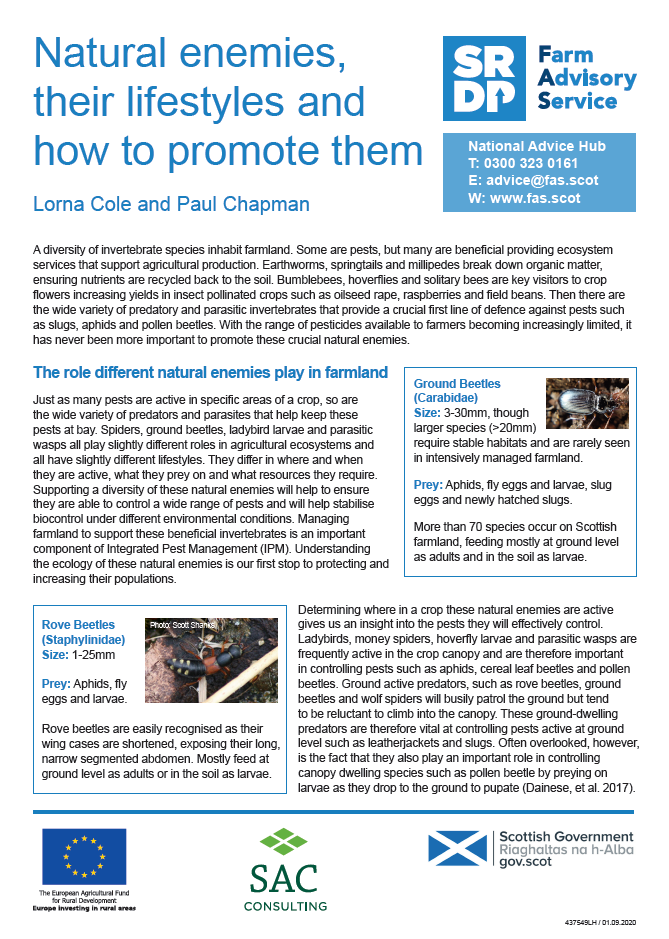Natural enemies, their lifestyles and how to promote them
Natural enemies, their lifestyles and how to promote them
A diversity of invertebrate species inhabit farmland. Some are pests, but many are beneficial providing ecosystem services that support agricultural production. Earthworms, springtails and millipedes break down organic matter, ensuring nutrients are recycled back to the soil. Bumblebees, hoverflies and solitary bees are key visitors to crop flowers increasing yields in insect-pollinated crops such as oilseed rape, raspberries and field beans. Then there are the wide variety of predatory and parasitic invertebrates that provide a crucial first line of defence against pests such as slugs, aphids and pollen beetles. With the range of pesticides available to farmers becoming increasingly limited, it has never been more important to promote these crucial natural enemies.

Sign up to the FAS newsletter
Receive updates on news, events and publications from Scotland’s Farm Advisory Service
